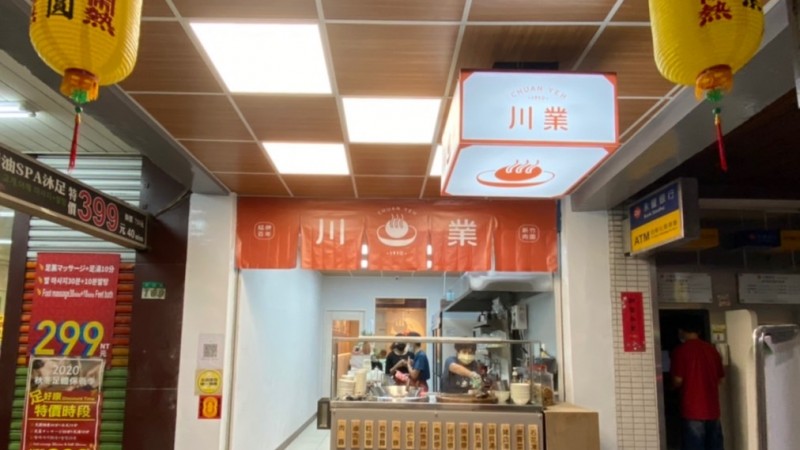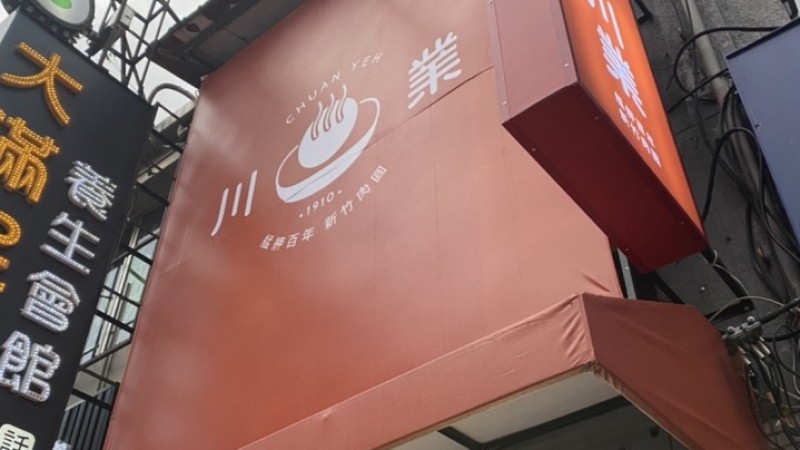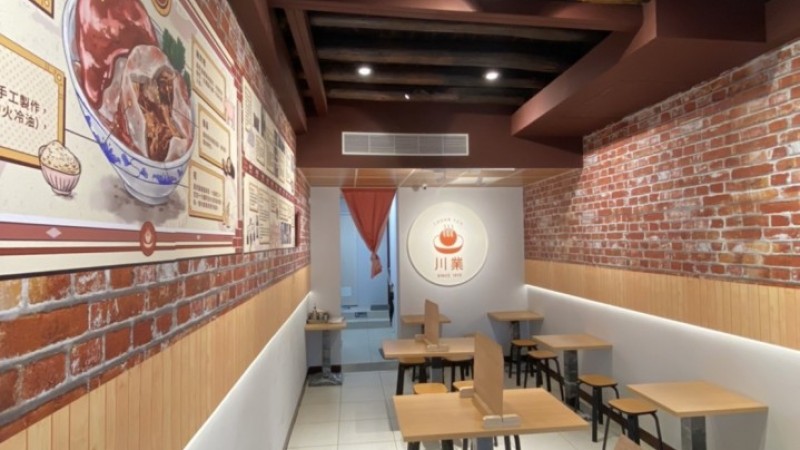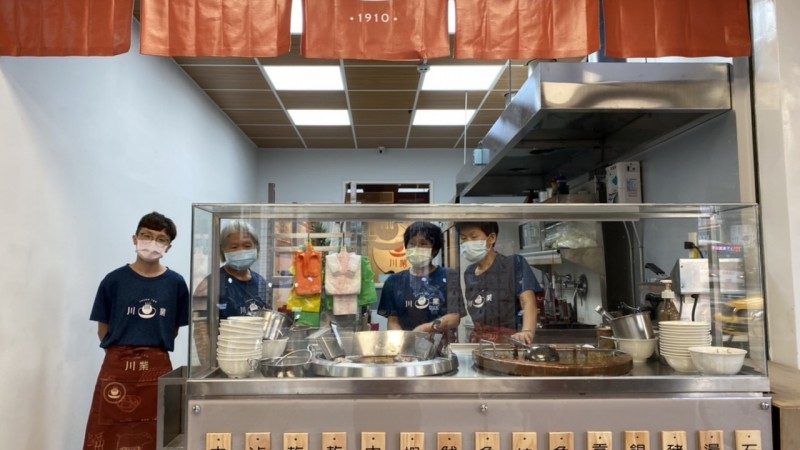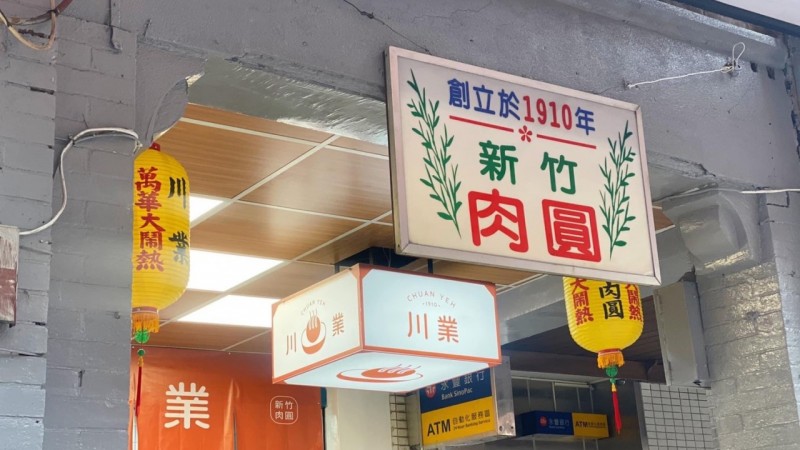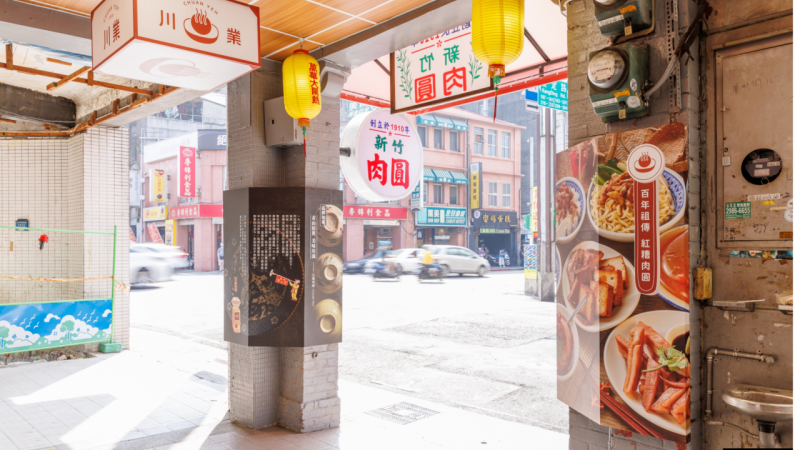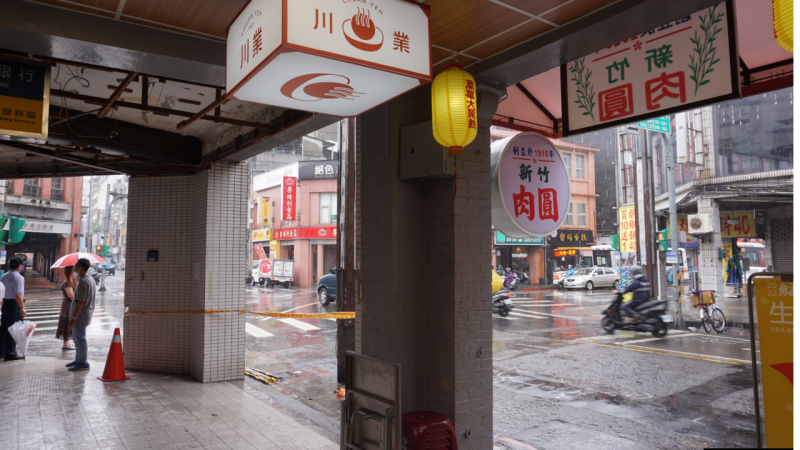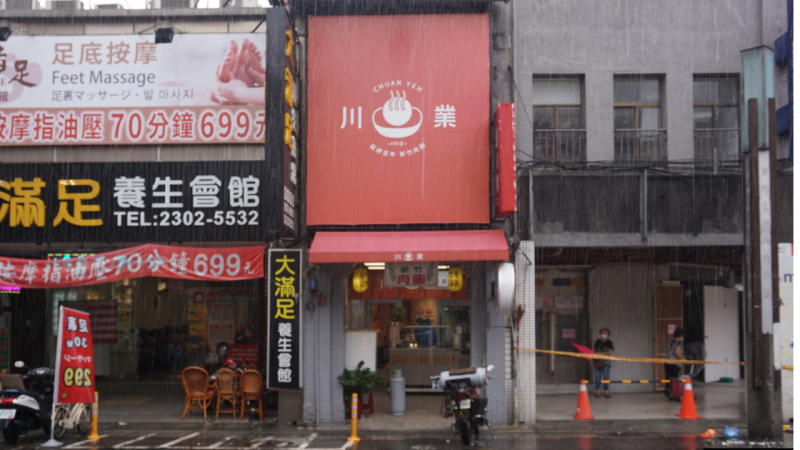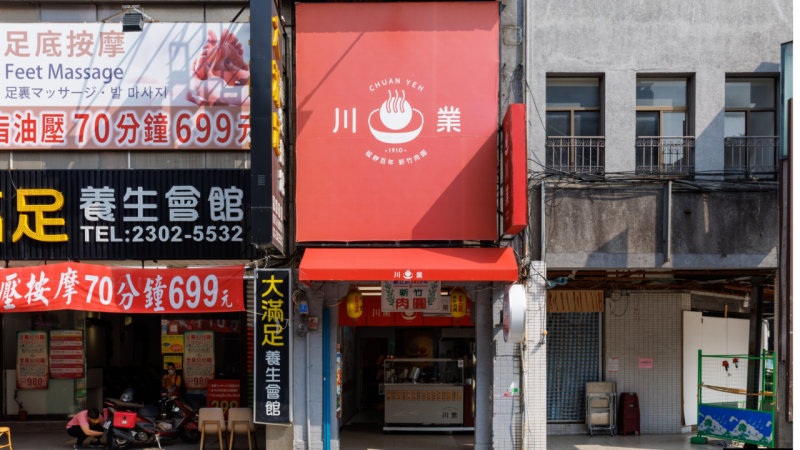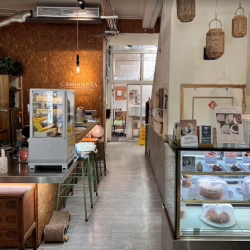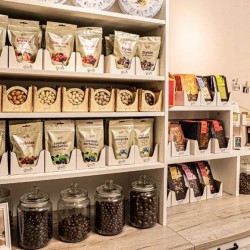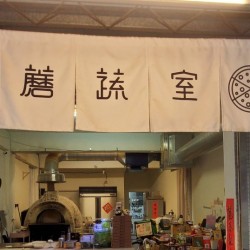Categories
-
English-friendly

-
Japanese-friendly

-
Korean-friendly

-
Friendly accessibility

-
Gender friendly

-
Convenient payment (Credit Card / EasyCard / 3rd Party payment)

-
Friendly bathroom

Business hour
| Business hour | Sunday | Monday | Tuesday | Wednesday | Thursday | Friday | Saturday |
|---|---|---|---|---|---|---|---|
| Open | 10:00 | 10:00 | 10:00 | 10:00 | 10:00 | 10:00 | 10:00 |
| Close | 21:00 | 21:00 | 21:00 | 21:00 | 21:00 | 21:00 | 21:00 |
| Business hour | Open | Close |
|---|---|---|
| Sunday | 10:00 | 21:00 |
| Monday | 10:00 | 21:00 |
| Tuesday | 10:00 | 21:00 |
| Wednesday | 10:00 | 21:00 |
| Thursday | 10:00 | 21:00 |
| Friday | 10:00 | 21:00 |
| Saturday | 10:00 | 21:00 |
Store Transformation in Taipei
【Brand story】
In 1910, next to the Hsinchu Chenghuang Temple, our ancestor Chen Chengye started his business by shouldering the burden and selling meatballs. Later, under the guidance of the Ling’an Zunwang of Hsinchu’s Qingshan Temple, our ancestors, along with our grandfather, moved the entire family to Mengjia. Here, they continued to receive the protection of Qingshan Temple’s divine presence.
The name “Hsinchu Meatballs” was chosen to honor their place of origin. They marinated fresh pork hind legs in red yeast sauce for a day and a night. Handcrafted and kneaded for flavor, the meatballs were rich and fragrant. They used sweet potato starch and five-grain rice to hand-make the chewy meatball skin. Adding Puli shiitake mushrooms and Chiayi bamboo shoots enhanced the texture and aroma. Deep-fried in medium heat, traditional red yeast sauce is drizzled over them.
From generation to generation, the Chen family has continued to make meatballs by hand every day.
Starting in Hsinchu and establishing roots in Mengjia, both places have been blessed by the Qingshan Wang. In 2021, we took one character from our ancestor’s name and renamed our business to “Chuan Ye Meatballs,” with the hope that our family’s century-old legacy will remain forever, and our delicious meatballs will continue to be enjoyed for generations to come.
【Key points of transformation】
The old meatball store deepens its heritage, and the green hills of both places have protected it for a hundred years.
Established in Hsinchu, a century-old brand of meatballs, owes its origins to the inspiration from the local Qing Shan (Green Hill) Temple. Generations before, the family moved to Wanhua. Last year (2021), the Hsinchu meatball store was renamed “Chuan Ye Meatballs,” and the store was renovated. This light transformation refines the brand’s core, positioning it as “Centennial Traditional Red Fermented Meatball” and using the slogan “Green Hills Remain, Deliciousness Flows Like a River” to focus on the connection between the brand and the Qing Shan Temple in Hsinchu and Mengjia (Wanhua). It includes adjusting the large wall paintings of the Mengjia Qing Shan King Festival inside the store and decorating the storefront and arcade to strengthen the memory and historical foundation of the hundred-year-old store.
In 1910, next to the Hsinchu Chenghuang Temple, our ancestor Chen Chengye started his business by shouldering the burden and selling meatballs. Later, under the guidance of the Ling’an Zunwang of Hsinchu’s Qingshan Temple, our ancestors, along with our grandfather, moved the entire family to Mengjia. Here, they continued to receive the protection of Qingshan Temple’s divine presence.
The name “Hsinchu Meatballs” was chosen to honor their place of origin. They marinated fresh pork hind legs in red yeast sauce for a day and a night. Handcrafted and kneaded for flavor, the meatballs were rich and fragrant. They used sweet potato starch and five-grain rice to hand-make the chewy meatball skin. Adding Puli shiitake mushrooms and Chiayi bamboo shoots enhanced the texture and aroma. Deep-fried in medium heat, traditional red yeast sauce is drizzled over them.
From generation to generation, the Chen family has continued to make meatballs by hand every day.
Starting in Hsinchu and establishing roots in Mengjia, both places have been blessed by the Qingshan Wang. In 2021, we took one character from our ancestor’s name and renamed our business to “Chuan Ye Meatballs,” with the hope that our family’s century-old legacy will remain forever, and our delicious meatballs will continue to be enjoyed for generations to come.
【Key points of transformation】
The old meatball store deepens its heritage, and the green hills of both places have protected it for a hundred years.
Established in Hsinchu, a century-old brand of meatballs, owes its origins to the inspiration from the local Qing Shan (Green Hill) Temple. Generations before, the family moved to Wanhua. Last year (2021), the Hsinchu meatball store was renamed “Chuan Ye Meatballs,” and the store was renovated. This light transformation refines the brand’s core, positioning it as “Centennial Traditional Red Fermented Meatball” and using the slogan “Green Hills Remain, Deliciousness Flows Like a River” to focus on the connection between the brand and the Qing Shan Temple in Hsinchu and Mengjia (Wanhua). It includes adjusting the large wall paintings of the Mengjia Qing Shan King Festival inside the store and decorating the storefront and arcade to strengthen the memory and historical foundation of the hundred-year-old store.
Transformation photos
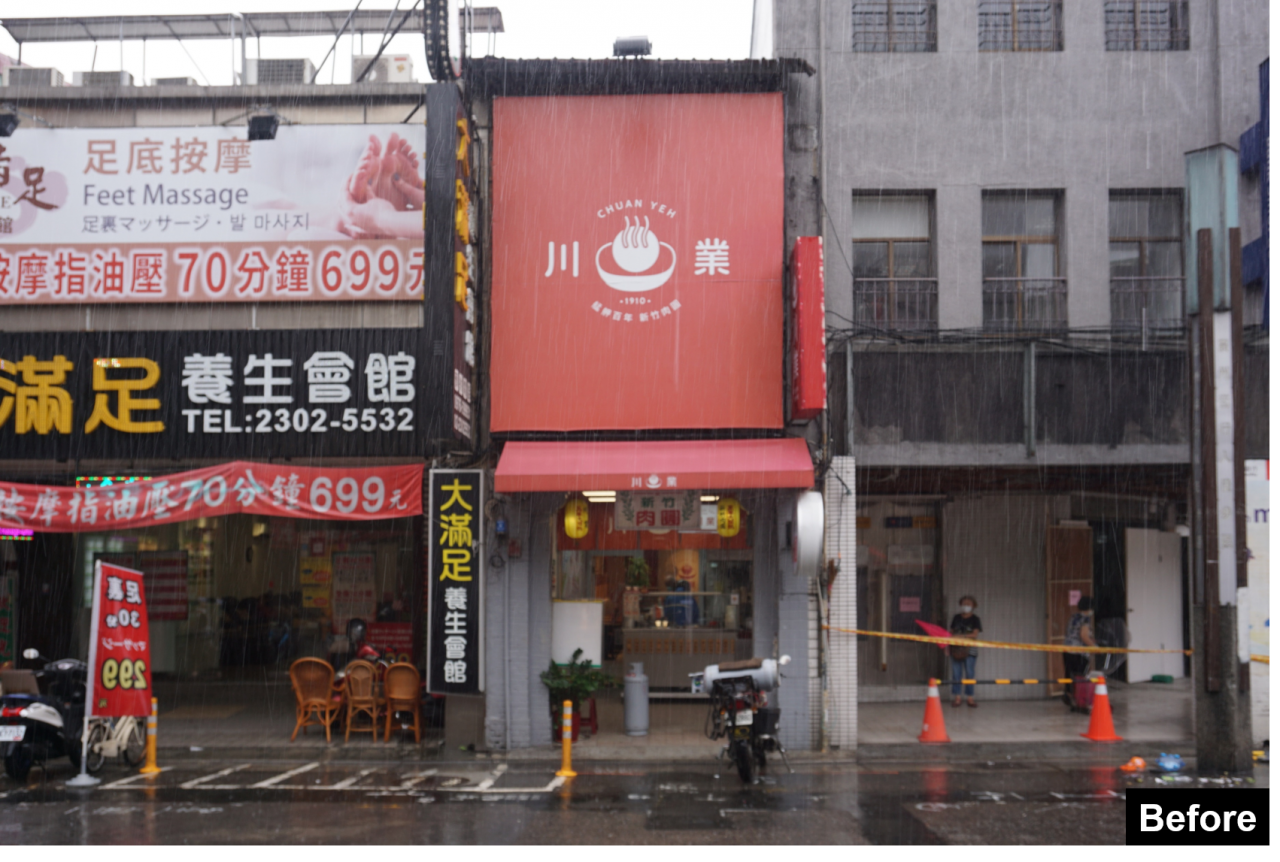
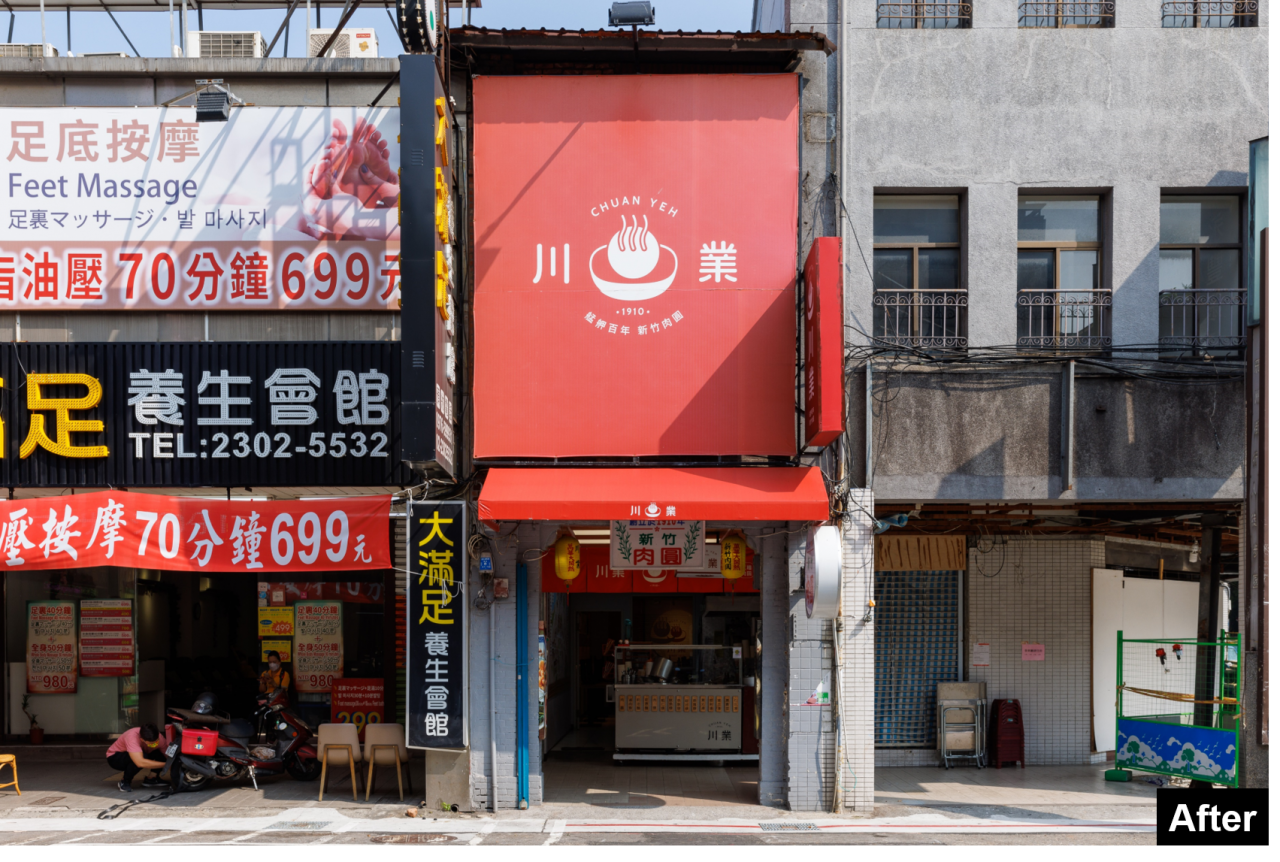
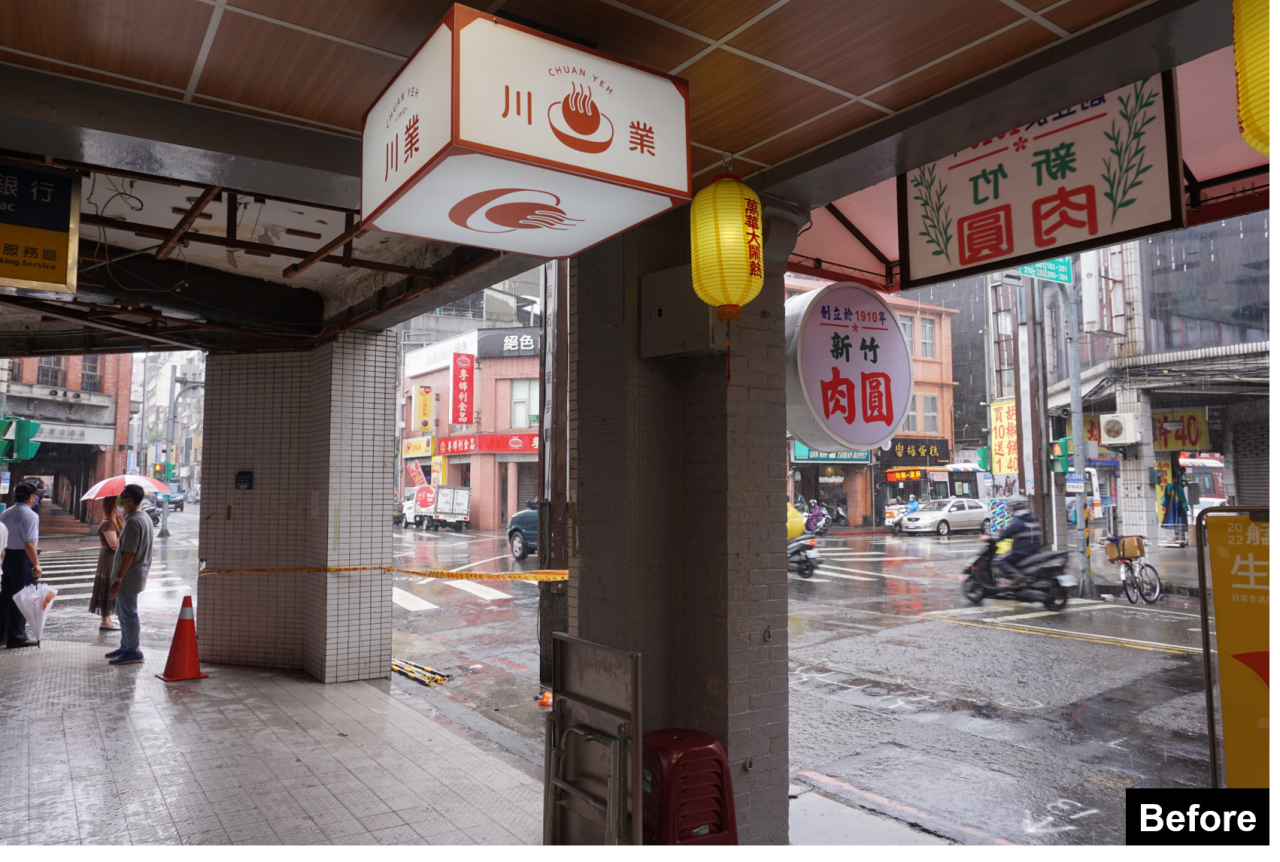
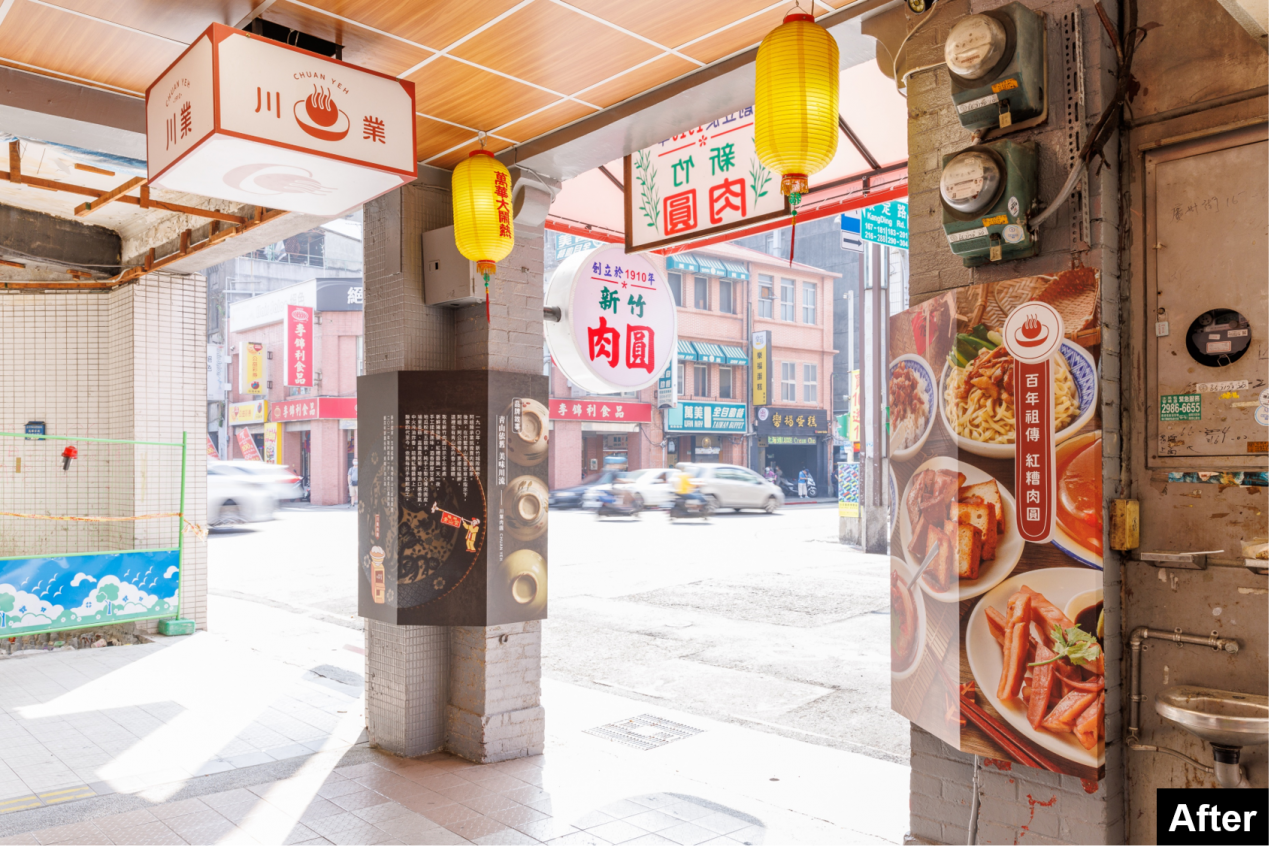
Description
In 1910, Hsinchu Ba-wan was opened near the Hsinchu Chenghuang Temple (now Hsinchu Guoyun Parking Lot), selling ba-wan, pork ball soup, and pork thick soup carried using carrying poles. Because of Monga's booming economy, Hsinchu Ba-wan was relocated north.
Yun-lung and Yun-hui, sons of the founder of Hsinchu Ba-wan, subsequently succeeded their father, continuing his business at the Longshan Market
(1984) Ming-yuan, the third-generation owner, took over the family business.
(1993) The Longshan Market was demolished, and Hsinchu Ba-wan was temporarily relocated to Sanshui Street.
(2005) Hsinchu Ba-wan had its first official store.
(2016) Chin-hung, the fourth-generation owner, took over the family business.
(2021) After 111 years, Hsinchu Ba-wan underwent a transformation and was renamed "Chuan Yeh Ba-wan." Despite the store being run by its fourth-generation owner, the owner continues to uphold the dreams of its founder.
Yun-lung and Yun-hui, sons of the founder of Hsinchu Ba-wan, subsequently succeeded their father, continuing his business at the Longshan Market
(1984) Ming-yuan, the third-generation owner, took over the family business.
(1993) The Longshan Market was demolished, and Hsinchu Ba-wan was temporarily relocated to Sanshui Street.
(2005) Hsinchu Ba-wan had its first official store.
(2016) Chin-hung, the fourth-generation owner, took over the family business.
(2021) After 111 years, Hsinchu Ba-wan underwent a transformation and was renamed "Chuan Yeh Ba-wan." Despite the store being run by its fourth-generation owner, the owner continues to uphold the dreams of its founder.
Reviews
-
 Bus Station: Kangding Station
Bus Station: Kangding Station
-
 Metro Station: Longshan Temple Station (Bangka Commercial Zone)
Metro Station: Longshan Temple Station (Bangka Commercial Zone)
-
 Train Station: Wanhua Station
Train Station: Wanhua Station
- U-BIKE: 距離約Longshan Temple Station (Bangka Commercial Zone)公里
Property location
- No. 165, Guangzhou St., Wanhua Dist., Taipei City 108015, Taiwan
- 02-2308-1641
- www.facebook.com
- Delicious food and specialty

 tw
tw en
en kr
kr jp
jp Add listing
Add listing